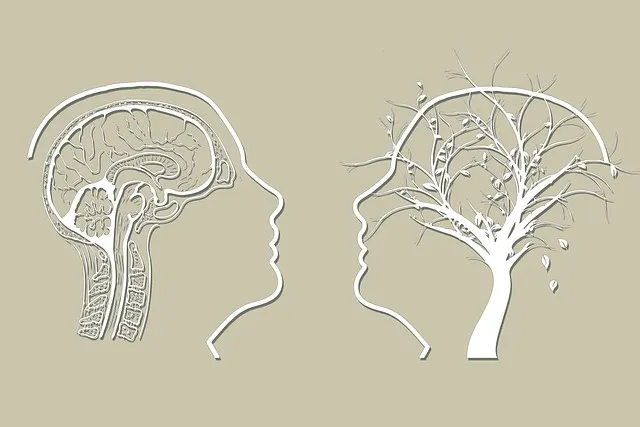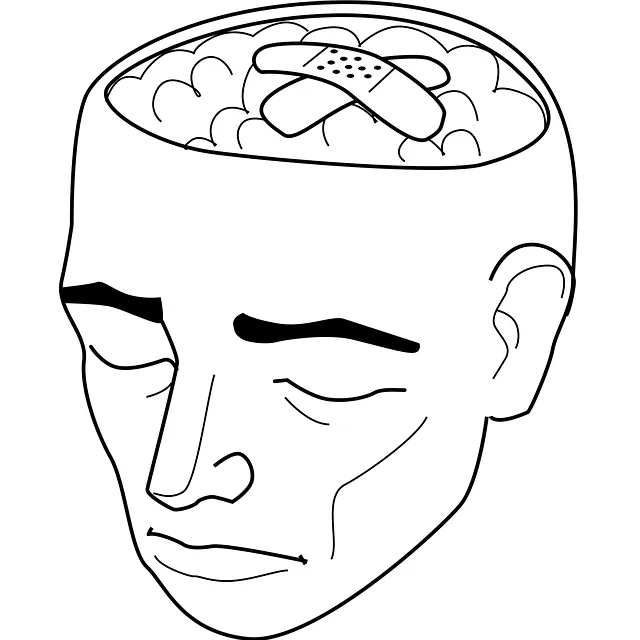Emotional Intelligence (EI) is a powerful tool for enhancing well-being, particularly at Northglenn Kaiser Permanente, where it's used to navigate relationships, make informed decisions, and manage stress. By recognizing emotions, understanding triggers, and practicing empathy, individuals can reduce stress-related issues, improve mental health, and strengthen personal connections. Mindfulness practices, integrated into coaching programs offered by Northglenn Kaiser Permanente, boost self-esteem and confidence, helping people cope with life's challenges and foster deeper connections. The Northglenn Kaiser Permanente mental health number is a key resource for seeking personalized, compassionate care.
Emotional intelligence (EI) is a vital asset for overall well-being and relationships. At Northglenn Kaiser Permanente, we recognize its potential to transform lives. This article guides you through the essential components of EI development. We’ll explore self-awareness as the cornerstone, delving into strategies to enhance your understanding of emotions. Developing empathy allows for deeper connections, while effective communication ensures constructive expression. Additionally, mindfulness practices offer a powerful tool for improving emotional intelligence.
- Understanding Emotional Intelligence: A Key to Well-Being
- The Role of Self-Awareness in Building Emotional Intelligence
- Developing Empathy: Connecting with Others on a Deeper Level
- Effective Communication: Expressing Emotions Constructively
- Practicing Mindfulness for Enhanced Emotional Intelligence
Understanding Emotional Intelligence: A Key to Well-Being

Emotional intelligence (EI) is a key component to overall well-being, often overlooked yet profoundly impactful. It’s not just about understanding emotions; it’s about leveraging that understanding to navigate relationships, make sound decisions, and manage stress effectively. For individuals seeking improved mental health, especially those reaching out to Northglenn Kaiser Permanente for support, developing EI can be a game-changer. This involves recognizing and managing one’s own emotions, as well as empathizing with and understanding the feelings of others.
In today’s fast-paced world, where burnout prevention is a growing concern, cultivating emotional intelligence plays a vital role in maintaining mental health. Public awareness campaigns focused on development and positive thinking can significantly contribute to this process. By fostering EI, individuals not only enhance their personal relationships but also become better equipped to handle challenging situations, thereby reducing the risk of stress-related issues and promoting overall well-being.
The Role of Self-Awareness in Building Emotional Intelligence

Emotional intelligence (EI) is a powerful tool for personal growth and effective communication, and self-awareness plays a pivotal role in its development. According to Northglenn Kaiser Permanente mental health experts, self-awareness involves recognizing your emotions, understanding their triggers, and being mindful of how they influence your thoughts and behaviors. It’s about taking a step back and observing yourself without judgment. This introspective practice is the foundation upon which other EI skills can be built.
Cultivating self-awareness allows individuals to engage in thoughtful decision-making, improve their relationships, and enhance overall mental well-being. When coupled with effective Mental Health Policy Analysis and Advocacy strategies, it becomes a game-changer. Moreover, practices like Compassion Cultivation can reinforce self-awareness by encouraging empathy and understanding towards oneself and others, leading to better mood management.
Developing Empathy: Connecting with Others on a Deeper Level

Developing empathy is a cornerstone of emotional intelligence and plays a pivotal role in connecting with others on a deeper level. This skill involves understanding and sharing the feelings of another, fostering meaningful relationships and enhancing communication. At Kaiser Permanente in Northglenn, mental health professionals are encouraged to cultivate empathy as a key component of patient care. By putting themselves in their clients’ shoes, healthcare providers can offer more personalized and compassionate support.
Empathy not only strengthens interpersonal connections but also contributes to inner strength development. When individuals feel heard and understood, they experience reduced stress and improved mental well-being. This, in turn, aligns with the core principles of mind over matter, demonstrating that cultivating empathy can be a powerful tool in managing and enhancing one’s overall mental health. Moreover, risk assessment for mental health professionals underscores the importance of self-awareness and emotional regulation when interacting with clients, making empathy an indispensable skill to ensure effective and ethical practice.
Effective Communication: Expressing Emotions Constructively

Effective communication is a cornerstone of emotional intelligence, especially when it comes to expressing emotions in a constructive manner. This involves actively listening to both your own feelings and those of others, allowing for a deeper understanding and connection. At Northglenn Kaiser Permanente, mental health services are designed to support individuals in navigating these complex emotions and fostering healthier communication patterns.
By practicing empathy building strategies, we can break down barriers related to mental illness stigma reduction efforts. Expressing emotions openly but respectfully empowers individuals to seek help when needed, such as reaching out to the mental health number provided by Kaiser Permanente Northglenn. This proactive approach to depression prevention is a key aspect of emotional intelligence development, ultimately leading to stronger interpersonal relationships and improved overall well-being.
Practicing Mindfulness for Enhanced Emotional Intelligence

In today’s fast-paced world, emotional intelligence (EQ) is a valuable asset for personal and professional growth. One effective practice to enhance EQ is mindfulness, which involves being fully present and engaged in the current moment. By cultivating mindfulness, individuals can develop a deeper understanding of their emotions and those of others. This awareness allows for better self-regulation, enabling folks to manage their reactions and respond thoughtfully rather than reacting impulsively.
For those seeking support in building emotional intelligence, Northglenn Kaiser Permanente mental health services offer resources like therapy sessions and coaching programs that focus on self-esteem improvement and confidence boosting. These programs are designed to help individuals navigate the complexities of their emotions, fostering a more profound connection with themselves and others. Mindfulness practices, integrated into these coaching programs, can revolutionize one’s mental wellness, making it easier to handle life’s challenges and navigate relationships with enhanced empathy.
Emotional intelligence, a vital skill for personal growth and well-being, can be cultivated through self-awareness, empathy, effective communication, and mindfulness. By embracing these strategies, individuals can navigate relationships more harmoniously and enhance their overall mental health, as supported by Northglenn Kaiser Permanente’s commitment to mental health services. Investing time in developing emotional intelligence equips people with the tools to manage emotions, foster connections, and thrive in a complex world.



